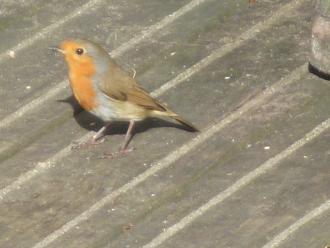Charles Jolly, Associate Member of our JPIC Group (Justice, Peace and the Integrity of Creation) shares this update.
COP 29, Baku, Azerbaijan

In Aesop's fable, a mountain emitting terrible noises was said to be in labour. But, as people watched to see what would happen, all they saw come out of it was a mouse!
After all the excitement and frantic discussions of the 30 hours of extra time of the COP 29 conference on Saturday 23November, when some of the most climate-vulnerable countries angrily walked out and it looked as though the talks could collapse (which would have been a disaster), a very disappointing deal on climate finance was finally reached.
To our great relief, however, Saudi Arabia and the Arab group of oil producing countries were unable to remove the COP 28 reference to transitioning away from fossil fuels; avoiding a retrograde step counts as a victory. Updating the Nationally Determined Contributions is still on track for COP 30, so we live in hope that the total cuts pledged by different nations will keep alive the possibility of limiting global warming to 1.5° C.
Although it is triple the previous target, $300 billion of international finance annually by 2035 to aid developing countries to reduce emissions, adapt to climate change and repair the loss and damage attributable to climate change is extremely disappointing. The real need has been assessed as being between $500 billion and $1,300 billion. India's representative had earlier described $300 billion as “abysmally poor and a paltry sum.” But at least there is a deal.
Richer countries say that they cannot afford more. This is, however, a matter of priorities. In 2023 the world (mainly richer countries like ours) was reported as spending $2,433 billion on the military and $620 billion on fossil fuel subsidies. We pray that world leaders, from Vladimir Putin to Donald Trump to Sir Keir Starmer, will understand the urgent climate emergency.
Elsewhere, in Cali (Colombia), COP 16 of the UN Convention on Biological Diversity agreed on an expanded role of indigenous peoples and local communities and agreed to share benefits from the use of digital genetic information. The meeting was suspended in the morning of 2 November but will resume later.
Eco Tips for December

Turning to more homely matters, we can find ways to make Christmas festivities both a joyous celebration of Christ’s coming and environmentally aware. Check out A Rocha UK’s Twelve tips for a greener Christmas . You may find that the change is for life!
And here are some tips for helping our garden birds in winter:
- Consider providing nesting boxes and include dry leaves, dry grass, bark, or wood chippings.
- Put out bird food and water on a regular basis (the water in shallow containers) and keep feeders and tables clean: scrub with a mild disinfectant solution weekly (brush debris from tables first).
- Provide some food with a high fat content to help keep birds warm: A good suet product containing a high volume of suet will keep it from freezing in the winter months.
- If you are bothered by cheeky squirrels, consider a squirrel-buster feeder.
